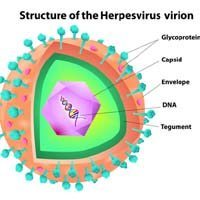BAP1 Test Offers More Accurate Mesothelioma Diagnosis
 A Chinese research study finds that adding a test for expression of the BAP1 tumor-suppressor protein to standard biomarker testing increases the diagnostic accuracy for malignant pleural mesothelioma to 93 percent.
A Chinese research study finds that adding a test for expression of the BAP1 tumor-suppressor protein to standard biomarker testing increases the diagnostic accuracy for malignant pleural mesothelioma to 93 percent.
Pleural mesothelioma is especially challenging to diagnose and to distinguish from lung cancer. The distinction is important, however, because the two cancers respond differently to different types of drugs.
In addition, the earlier malignant mesothelioma can be identified, the more likely it is to respond to treatment, resulting in longer survival.
BAP1 Expression and Mesothelioma Risk
In 2011, a pivotal study of familial cases of malignant mesothelioma determined that an inherited mutation on the BAP1 gene made certain asbestos-exposed people more likely than others to develop mesothelioma.
Another study six years later determined that BAP1 mutation (and resulting loss of BAP1 protein expression) does not have to be present at birth, but can develop later in life. Both situations make people more susceptible to mesothelioma and several other types of cancer.
BAP1 Loss as a Mesothelioma Diagnostic Marker
In a new study of BAP1 in mesothelioma, pathologists in Zhejiang Cancer Hospital in Hangzhou, China evaluated 22 people with malignant pleural mesothelioma. Most of the patients (17) had the epithelioid type of mesothelioma, 2 had the sarcomatoid variety, and 3 were identified as biphasic.
As a control group, the study included 80 patients with non-small cell lung cancer that had spread to the pleural membrane (where mesothelioma tumors grow) and 15 people with carcinosarcomas.
Researchers applied an antibody panel that included 10 different cancer markers to each cancer case. They used the immunohistochemical testing method to test for BAP1 expression.
“All 80 cases of non-small cell lung cancer and 15 cases of carcinosarcoma were BAP1 positive,” writes lead investigator ZY Guo in the Chinese Journal of Pathology. “In contrast, 64 percent (14/22) of malignant mesotheliomas lost BAP1 expression.”
Increasing Mesothelioma Diagnostic Accuracy
When BAP1 was added to the mesothelioma 10-marker panel, the diagnostic accuracy increased to 93 percent. The researchers conclude that loss of BAP1 expression is an especially valuable marker for mesothelioma because it was not found in any cases of similar cancers.
“It is therefore recommended that BAP1 can be used in conjunction with other immunohistochemical markers to improve the diagnostic accuracy of malignant mesothelioma,” concludes the report.
Previous studies have suggested that the BAP1 mutation is found in 70 to 90 percent of mesothelioma cases but only about 20 percent of cancers overall. So far, BAP1 mutation is the only genetic mutation linked to mesothelioma susceptibility.
BAP1 and Mesothelioma Treatment
In addition to helping to diagnose mesothelioma, researchers are hoping that BAP1 mutation may eventually play a role in mesothelioma treatment. A Phase 2 multicenter trial is currently underway of a drug called Tazemetostat specifically for mesothelioma patients who have BAP1 loss.
BAP1 testing requires a blood draw and results take about two weeks. A positive test is not a cancer diagnosis, but can be used to help identify individuals who may be at highest risk and help them take steps to minimize their risk.
Source:
Guo, ZY, “Loss of BRCA associated protein 1 expression in malignant mesothelioma and its diagnostic application”, October 8, 2017, Chinese Journal of Pathology





